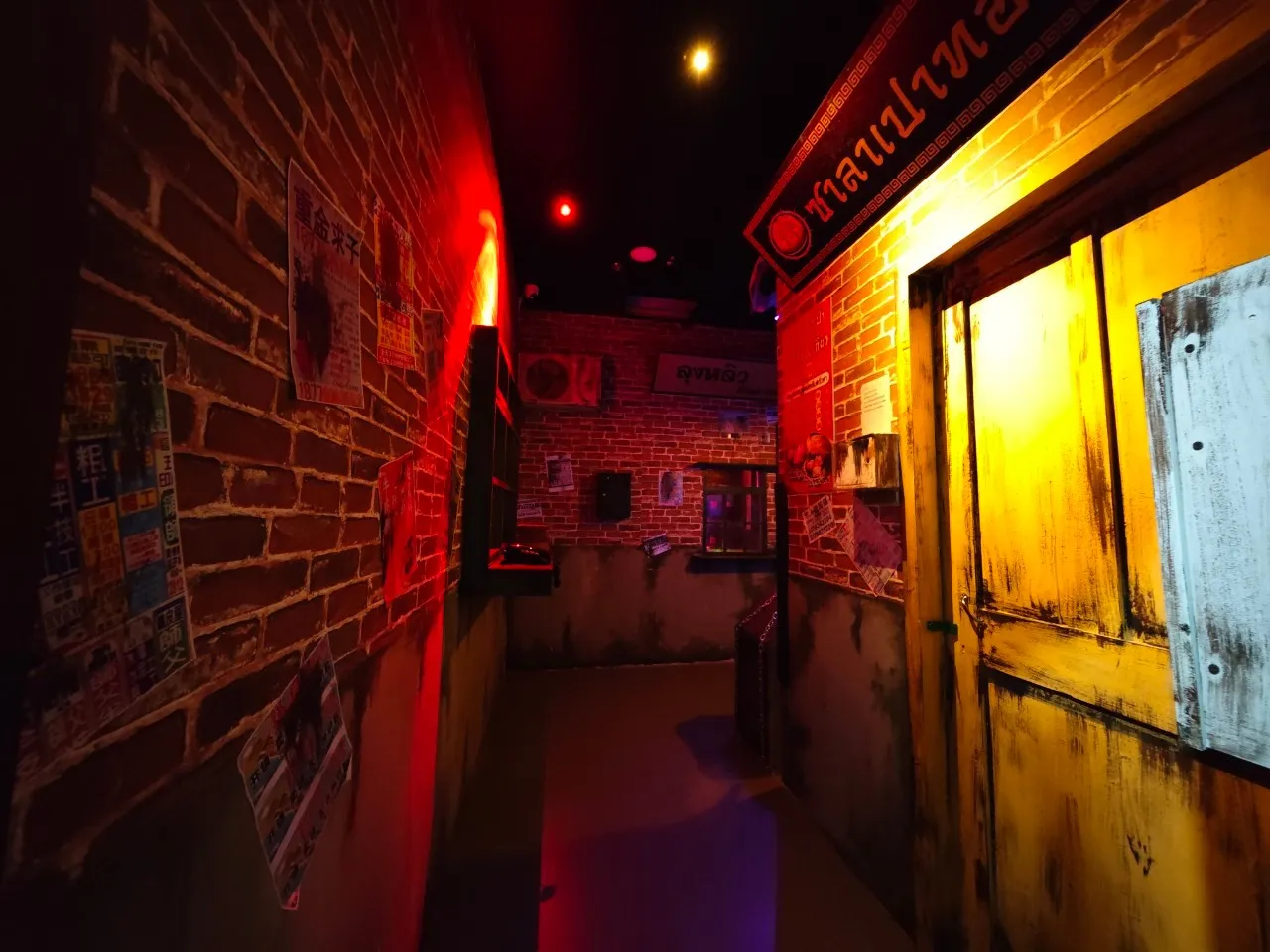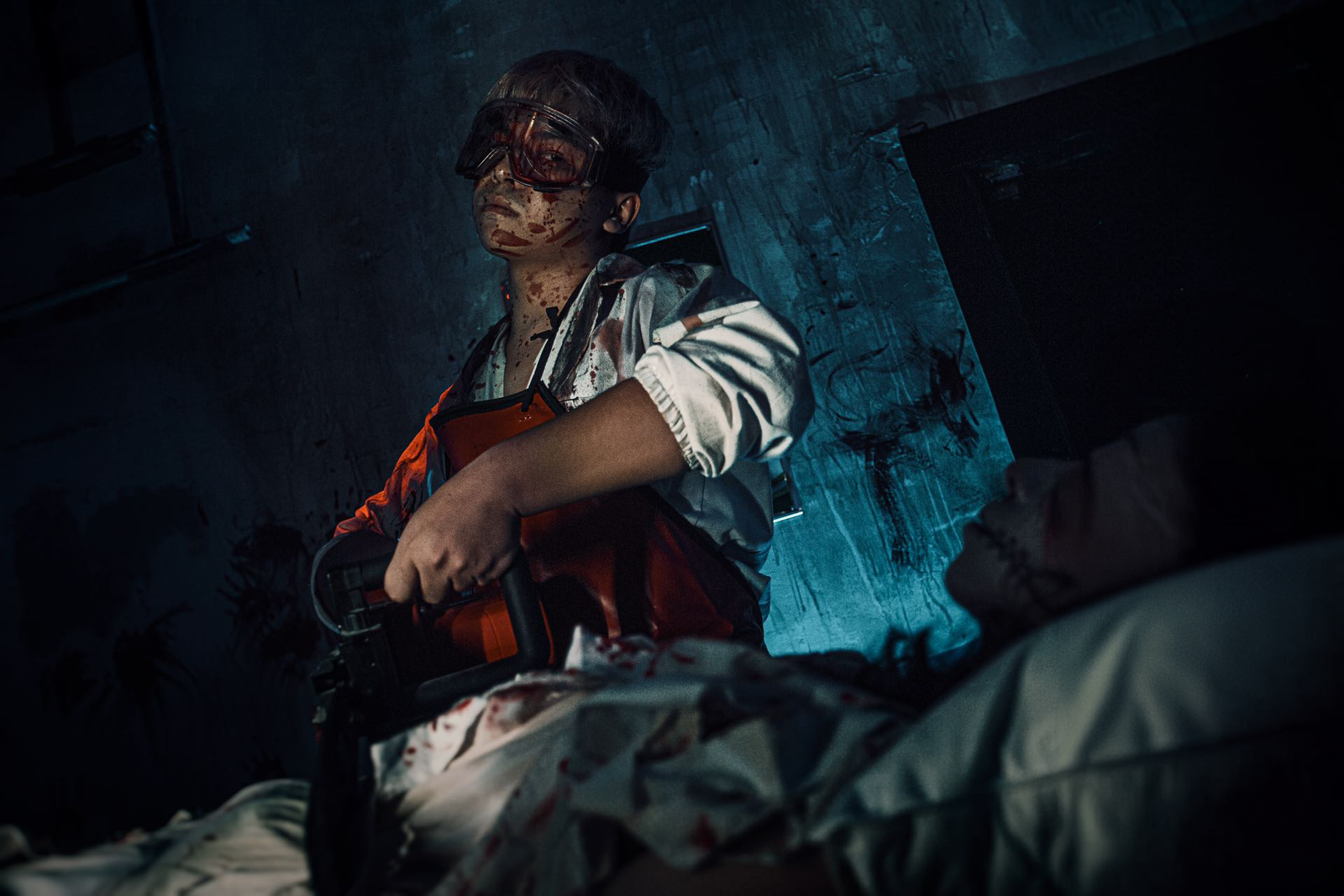Introduction to Escape Room Games: Escape Room is an immersive puzzle game. Players are locked in a room and must find clues within the room to decipher codes. Only by solving all the puzzles within the set time can they successfully escape (i.e., complete the game). If you want to learn more about Escape Room projects, you can visit Mystiworld, Thailand’s first Escape Room store, which had already received thousands of customers during its trial period. So, why exactly are Escape Room games so popular? Today, we aim to find answers by studying the behavior of players within the rooms.

How does the Escape Room affect players’ behavior?
01. Layered puzzles and time constraints force players to think quickly, influencing their emotions WHYY-FM, a radio station in the United States, once aired a program about Escape Room games. Professor Art Markman, who was invited to analyze the psychology of players in Escape Rooms, pointed out that the endless puzzles, time limits, and the team’s enthusiasm for escaping the room would speed up the players’ thought processes. This quick thinking can evoke positive emotions in players. In other words, when we engage in intense puzzle-solving, we feel more excited and confident.
Researchers at Princeton University, led by Pronin and her team (2008), conducted six experiments to explore the relationship between quick thinking and positive emotions. They divided the volunteers into a fast-thinking group and a slow-thinking group and assigned them different tasks in the six experiments (such as brainstorming on an open-ended question, reading 64 ideas on a topic, listening to recordings and remembering the content, playing word games, watching videos and summarizing the content, etc.).
Compared to the tasks set for the slow-thinking group, the fast-thinking group had more restrictions and tighter time constraints. For instance, in one of the experiments, although both groups were asked to answer the question “How can you earn enough money in one summer to cover a year of college tuition?”, the fast-thinking group was required to write down as many answers as possible, regardless of quality, while the slow-thinking group was only asked to write down their “good ideas.”
The results of all six experiments were surprisingly consistent: Whether it was a creative brainstorming session or a relatively mundane word game, the fast-thinking group experienced more positive emotions (such as excitement, confidence, pride) after completing the tasks. This shows that no matter what type of task it is, as long as it forces our brains to work quickly, it can boost our mood and make us feel better about ourselves.

02. The game design of Escape Rooms leads players to exhibit behaviors different from their usual actions In the same program, social psychologist Kevin Swartout mentioned that people’s behavior in an Escape Room often differs from their normal actions. Players trapped in an Escape Room are more willing to voice their ideas and contribute their expertise to solving puzzles. Swartout believes that this unusual behavior occurs because players know that there is always an answer to the puzzles, and usually only one. Knowing that there is a solution makes players more confident, which leads to more proactive behavior in the puzzle-solving process.
Additionally, since Escape Room is a team game, whether the teammates are familiar friends or strangers playing together, players must quickly establish a cooperative relationship and accept new social roles. In real life, players have their stable social roles—they might be students, teachers, company employees, or bosses. However, in the Escape Room, social roles are often determined by abilities related to solving puzzles. This means that factors determining social roles in real life (such as professional abilities, job nature, family, etc.) do not apply in the Escape Room. Therefore, various social roles in real life may temporarily “disappear.”
At the same time, players will assume new social roles related to their expertise (such as a leader guiding the team, a tank protecting teammates, a puzzle-solving expert, or a follower who relies on others). A boss who usually presides over large meetings might find themselves at a loss with complex puzzles in the Escape Room, while a seemingly clumsy and careless colleague may surprisingly excel in guiding the team to find clues. Escape Rooms not only offer opportunities to practice teamwork and communication skills but also provide a stage for players to experience new social roles.
Why do horror-themed Escape Rooms remain popular in the market? Escape Rooms come in various themes, but horror-themed rooms have withstood the test of time, attracting new and returning players to challenge the NPCs.
Why do people enjoy horror-themed Escape Rooms, and what kind of people like to play them?
01. Experiencing something out of the ordinary Psychology professor Art Markman explained the popularity of horror-themed Escape Rooms by viewing them as an out-of-the-ordinary experience. Markman believes that while humans have many emotions, the range of emotions we experience in daily life is quite limited. For example, we rarely face fear of death or threats to our lives, but in a horror-themed Escape Room, we might experience the fear of being chased by zombies, the shock of traps being triggered, and the disgust of navigating through a dark and foul-smelling environment. Therefore, in a safe game setting like an Escape Room, curious players are eager to explore horror-themed rooms to experience emotions they can’t encounter in everyday life.
02. Enjoying the pleasure of excitement transfer Zillmann’s (2019) excitation transfer theory can also explain the appeal of horror-themed Escape Rooms. The theory suggests that physiological or emotional arousal from one situation can linger and enhance emotional reactions in a subsequent situation.
For example, if you rush out of the house one morning and accidentally drop your phone, shattering the screen, you might feel angry with yourself. Later, while driving to work, you get cut off by another car in heavy traffic and have to stop at a red light. Your sudden outburst of anger at the car cutting you off might be due to residual frustration from breaking your phone earlier.
Based on the excitation transfer theory, we can assume that the fear and tension players experience in a horror-themed Escape Room may linger even after they successfully escape, and these lingering emotions enhance the joy and sense of accomplishment after escaping. The more negative emotions they experience in the room, the greater the subsequent pleasure. This might be one reason why players find horror-themed rooms so addictive.
03. People with a high sensation-seeking index are more likely to enjoy horror-themed Escape Rooms Zuckerman (2019) measured the sensation-seeking index in four aspects:
- Thrill and adventure seeking
- Experience seeking
- Disinhibition
- Susceptibility to boredom
The study found that teenagers and young adults have higher sensation-seeking indices than older adults. Additionally, people with a high sensation-seeking index experience more positive emotions after physiological arousal, and they actively seek out stimuli to increase their level of arousal. Therefore, those with a high sensation-seeking index are more likely to watch horror movies, visit haunted houses, and explore horror-themed Escape Rooms to experience intense thrills, which bring them more positive emotions. However, people with a low sensation-seeking index are more likely to feel negative emotions when aroused by horror elements, making it difficult for them to enjoy the excitement.
Escape Room games indeed offer players the opportunity to exercise their brains, teamwork, and leadership skills while having fun. However, as the target age range of players expands, many parents and concerned individuals are becoming worried about the safety of teenage players.
Therefore, we’ve prepared some precautions for potential Escape Room players:
⚠️ Choose a room theme that suits you, stay calm, and know when to give up Not everyone likes or is suited to play horror-themed Escape Rooms. Even though the intense storylines and the joy of successfully escaping are tempting, players with a low sensation-seeking index and low stress tolerance should know their limits. Especially if you notice abnormal physical reactions in a horror-themed Escape Room, remember to quit at the right time rather than stubbornly pushing through, as this could lead to serious problems.
⚠️ Embrace your new role in the Escape Room, seek cooperation, and avoid conflicts As mentioned earlier, players in an Escape Room might need to accept new social roles that differ significantly from real life. This drastic difference could cause frustration and conflicts with teammates. Players should relax, enjoy the rare out-of-the-ordinary experience, immerse themselves in the world of the Escape Room, and work together with their temporary teammates to escape. After all, whether you like it or not, you’ll still have to return to your familiar social roles when the game ends.
enjoy it here
